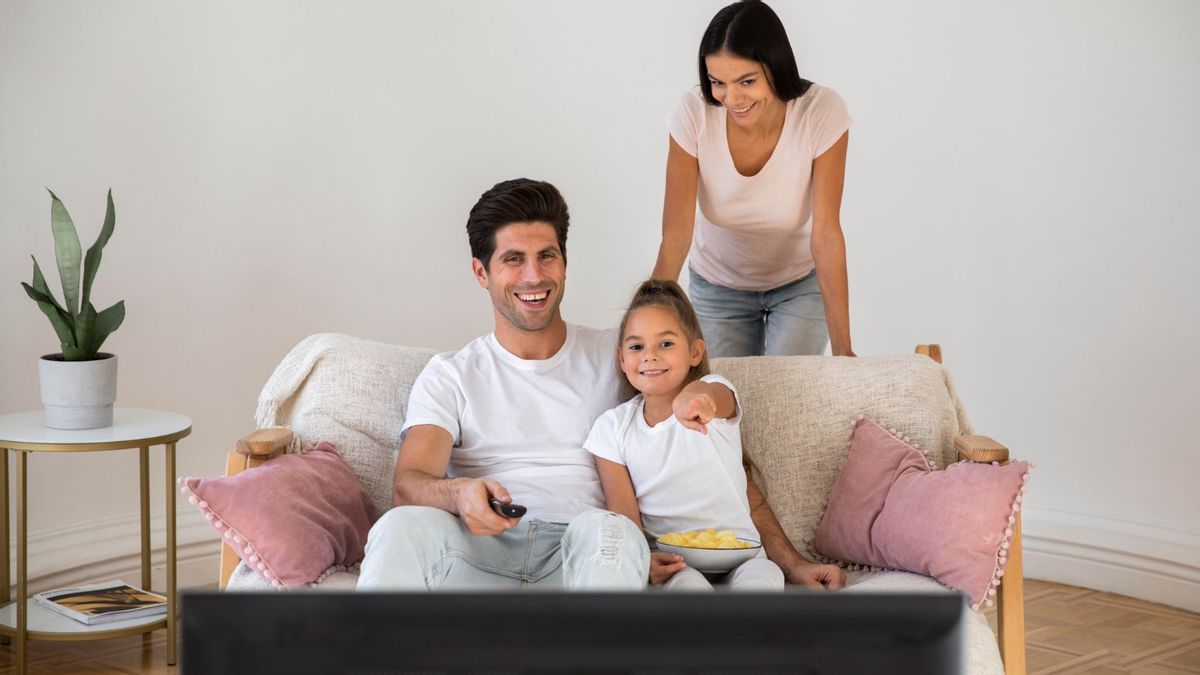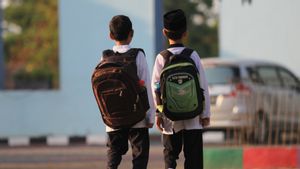YOGYAKARTA Children's literacy skills are related to their ability to read and write. This ability, according to research, relates to the time they watched shows with their families. Researchers from Australia, Teren Sanders and colleagues, found a positive relationship between children's literacy skills and their time watching shows with their families.
Research conducted by Sanders and his colleagues has reviewed more than 100 studies and involved 1.9 million children and adolescents. His research found that overall, there is little relationship between screen time and the results, including literacy and health. Furthermore, researchers observed in more detail what was done with children, either with their parents or alone.
Interestingly, the findings show there is a negative relationship between children watching screens and reading skills as a whole. However, when they study parents watching the screen with their children, they find a positive relationship between staring at the screen and literacy. That is, taking the time to watch with the children, can be a good thing.
This study, specifically explores the relationship that is built between parents and children while watching and after. Researchers are not digging about time, but moments when watching conversations together. Parents and children may be divided occasionally and not see the screen. But parents tend to ask questions like What do you like about this show? or Why is the character funny?. With this dialogue, parents check the opinions of the children regarding what they watch.
On the other hand, the researchers found a clear negative relationship between the use of social media and depression. General surgeon Vivek Murthy, reported by Psychology Today, Sunday, December 17, explained that there is not enough evidence for the above findings. But he believes social media is not safe enough for children. Murthy referred to research showing that up to 95 percent of US teenagers use social media. Other studies found that teens who use it more than three hours a day face twice the level of depression and anxiety compared to those who use it less. We should be worried about these patterns and be very careful when we look at larger children self-isolating and using social media excessively.
SEE ALSO:
Through the above research, it is important to agree and impose screentimes when children are in elementary school. For younger children, especially when they are 2.5 years old and under, avoid letting your child watch the screen alone because it can eliminate important interactions that they need with people in real life.
Speech pathologists who have treated children from toddlers to high school age, Rebecca Rolland, Ed.D. said, it's not how long children have to access digital shows. But conversations about shows are important because they help children pay attention.
It's very important to understand, use technology to start conversations to increase children's literacy. Then ask children open questions and give them a more active opportunity to express their arguments. For teenagers, limit the use of social media and help them see interactive applications, which help build self-awareness and mental health.
The English, Chinese, Japanese, Arabic, and French versions are automatically generated by the AI. So there may still be inaccuracies in translating, please always see Indonesian as our main language. (system supported by DigitalSiber.id)


















